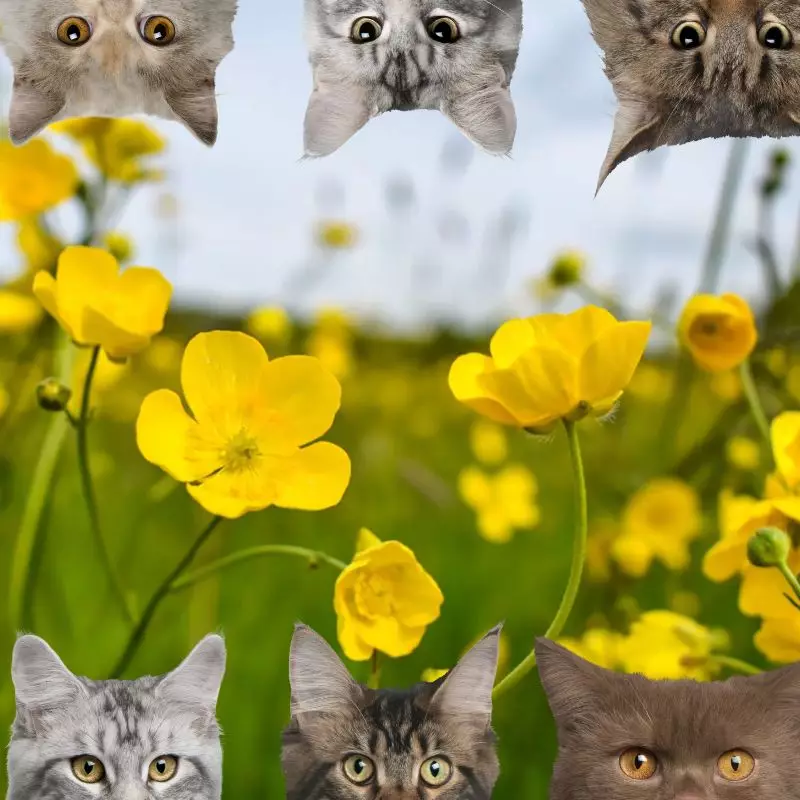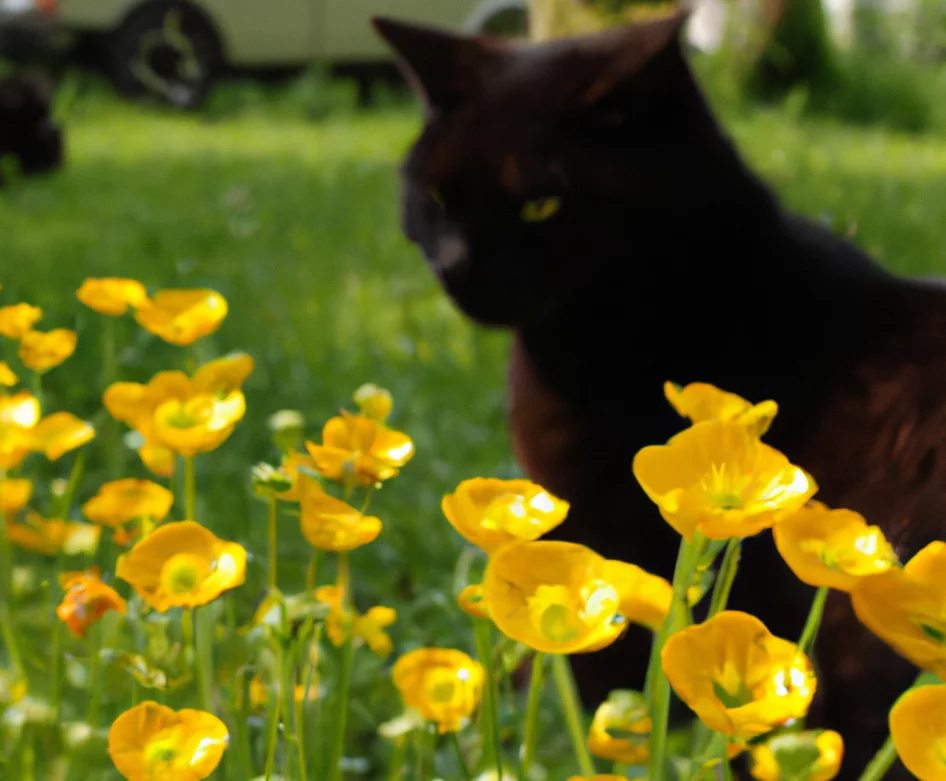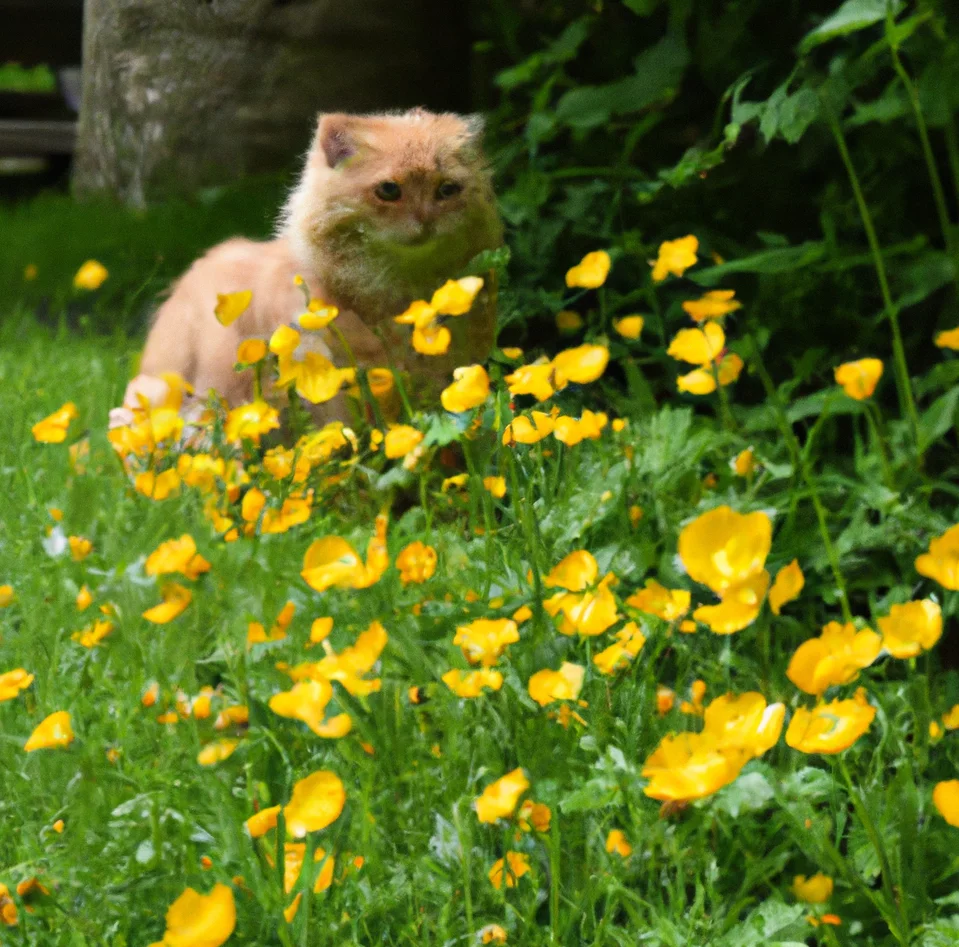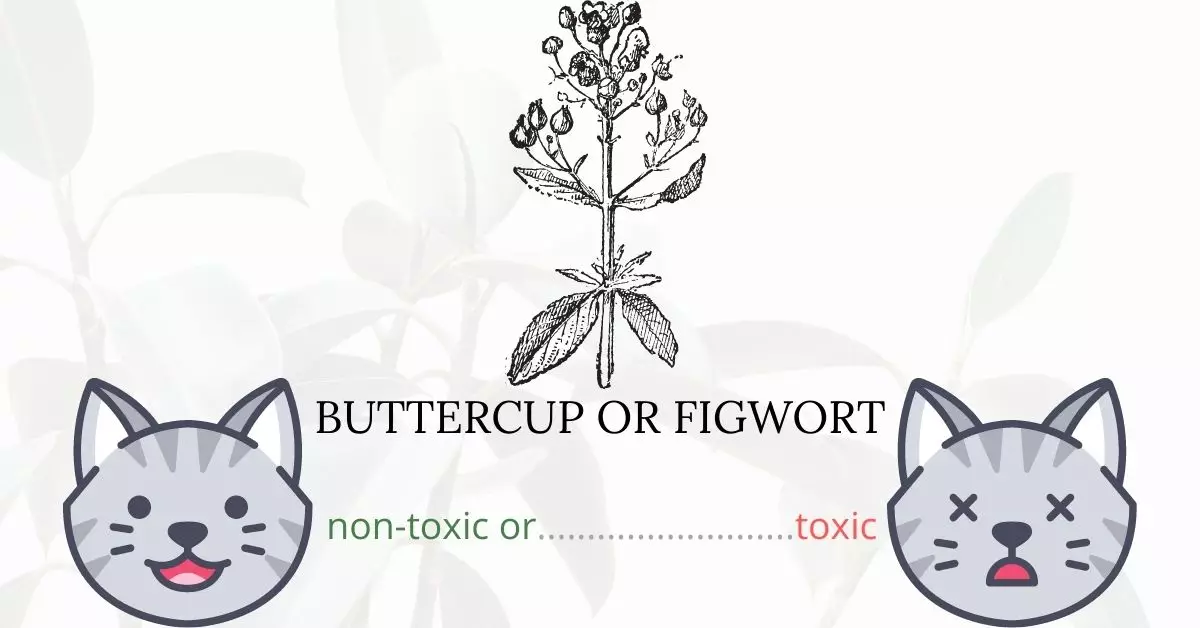Yes, Buttercup (also known as Butter Cress and Figwort) is toxic to cats. This flowering plant contains the chemical ranunculin, which, when crushed or chewed, transforms into an irritant called protoanemonin. This substance is particularly harmful to felines. When ingested by cats, protoanemonin, an irritant oil glycoside, can cause significant discomfort in the mouth and throughout the gastrointestinal tract. It’s worth noting that the plant’s blossoms have the highest concentrations of these toxic substances. The impact of the poisoning largely depends on the amount of toxin consumed.
This article was crafted in close collaboration with a team of experienced DVMs (doctors of veterinary medicine). Their invaluable insights ensure that we provide accurate and up-to-date information on the potential risks various plants pose to cats. Additionally, our findings have been cross-referenced with reputable sources such as the ASPCA and PetMD for added accuracy and comprehensiveness.
Clinical Signs of Buttercup or Figwort Poisoning in Cats

The Buttercup plant, with its alluring blossoms, poses a danger to our feline friends. While all parts of the buttercup plant are toxic to cats, it’s the flowers that contain the highest concentration of toxins. When a cat comes into contact with, inhales, or ingests any part of the buttercup plant, certain clinical signs may manifest. Here’s a detailed look at these signs and the reasons behind their occurrence:
- Swelling of the mouth: This occurs due to the irritant nature of protoanemonin, which can cause inflammation upon direct contact.
- Drooling: The irritant oil glycoside in the buttercup can cause immediate discomfort in the mouth, leading to excessive salivation as the cat’s body tries to expel the irritant.
- Vomiting: After ingestion, the toxins can irritate the stomach lining, prompting the cat’s body to get rid of the ingested substance through vomiting.
- Diarrhea: Similarly, the gastrointestinal tract may get irritated, leading to a rapid expulsion of the toxins, resulting in diarrhea.
- Lethargy: The overall distress caused by the toxin affects the cat’s energy levels, leading to a general sense of fatigue and lethargy.
- Urine with blood: The toxins might damage the kidneys or urinary tract, leading to hematuria or the presence of blood in the urine.
- Tremors: These involuntary muscle movements are a result of the neurotoxic effects of the toxins present in the buttercup.
- Seizures: In more severe cases, the neurotoxic effects can escalate to seizures, which require immediate veterinary attention.
If you suspect your cat has been in contact with a buttercup plant, it’s crucial to consult with a veterinarian promptly.
First Aid and Treatment of Buttercup or Figwort Poisoning in Cats

Many poisoning instances appear to be emergency circumstances, and your cat should be treated by a veterinarian as soon as possible after consuming something hazardous.
Your veterinarian will prescribe drugs to help minimize tremors and seizures, which, if left untreated, can result in lasting harm to your cat. Medicines will be administered intravenously. The vet may also induce vomiting in your cat in order to remove any remaining poisonous material from his or her system. In some situations, the veterinarian may do gastric lavage, which entails injecting saline or water into the stomach with a needleless syringe and then removing it with a stomach tube.
Recovery from Buttercup or Figwort Poisoning in Cats

Indications of buttercup poisoning can be severe if your cat ingested large portions of the plant but most cats recover completely after receiving prompt and appropriate veterinary care. Follow-up blood and urine tests may be needed to guarantee that your cat’s kidney and other organ functions have not been harmed as a result of the poisoning or the medications used during treatment.
Prevention of Buttercup or Figwort Poisoning in Cats
If your cat was exposed to buttercup plants in your home, remove them right away to prevent another poisoning episode. Check your neighborhood if there are known buttercups grown, if there is, avoid letting your cat go to the area. Secure your cat in the comforts of your home and limit their time outdoors.
If you love plants but have cats at home, check out these lists:





